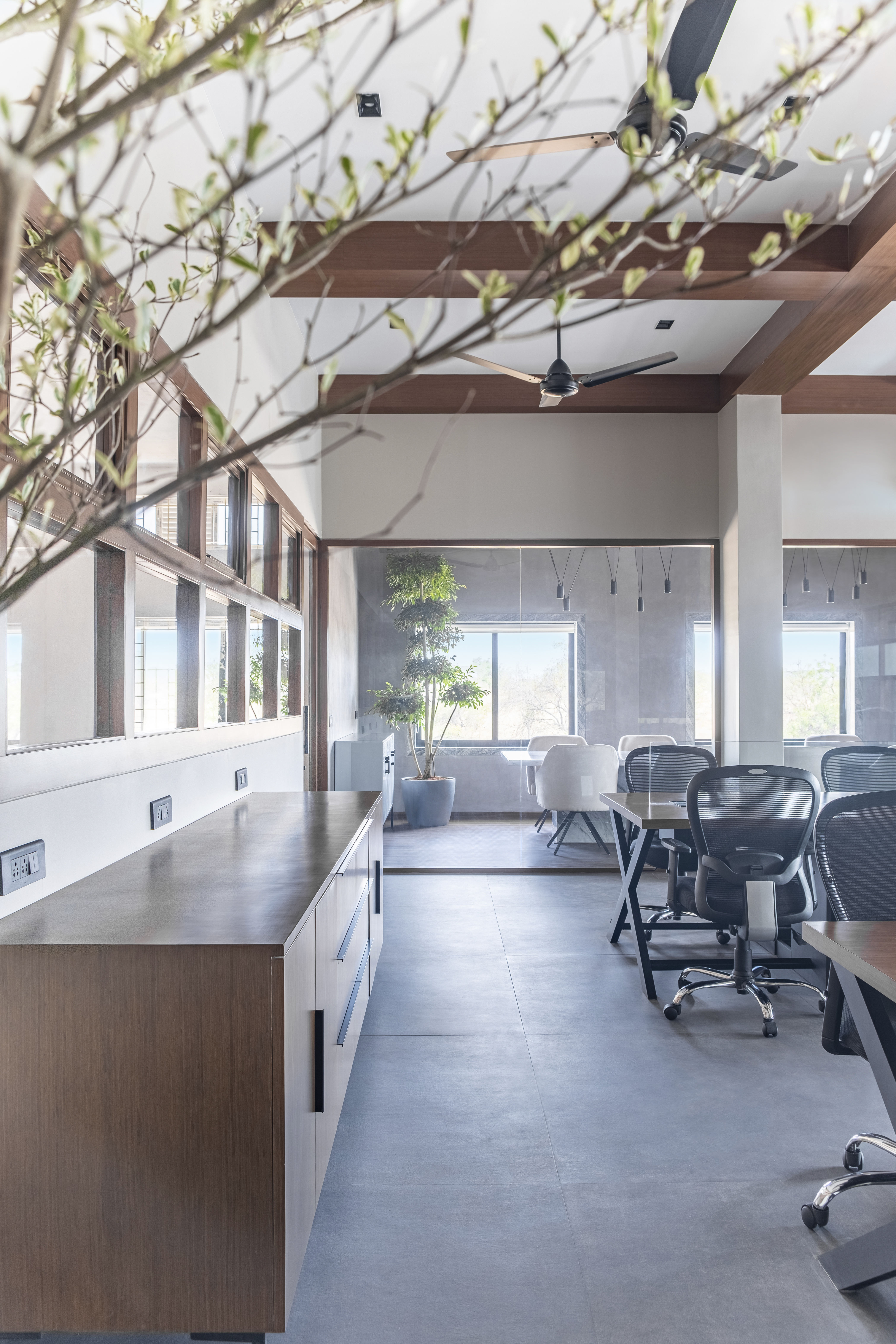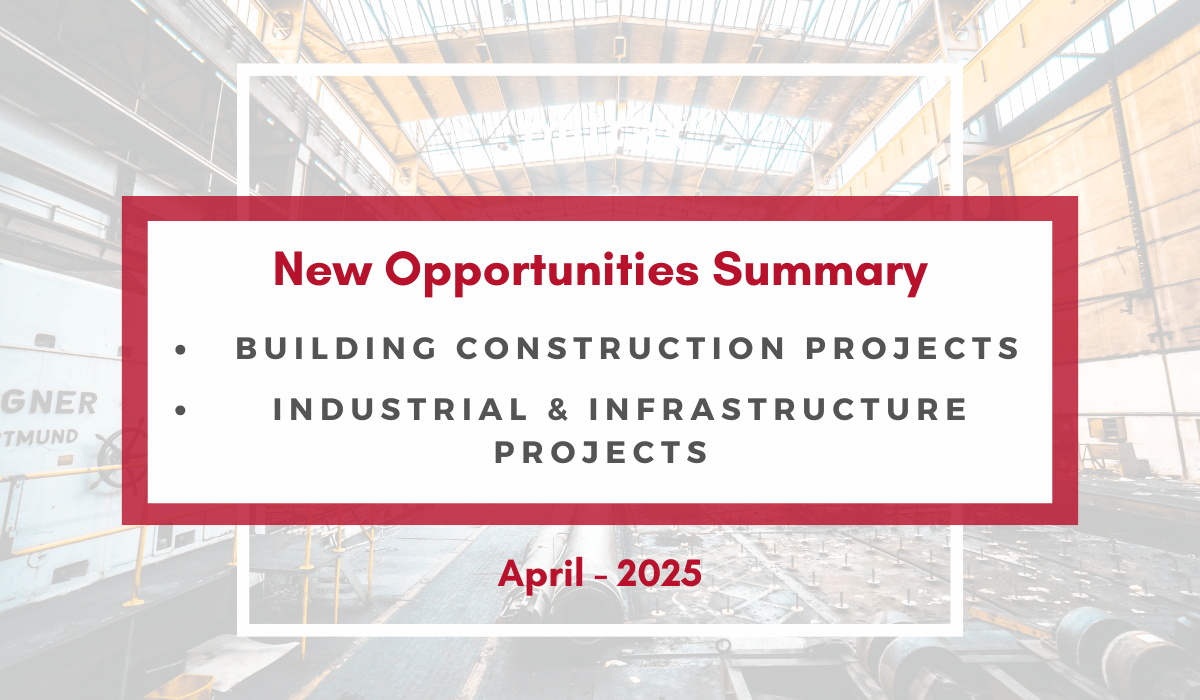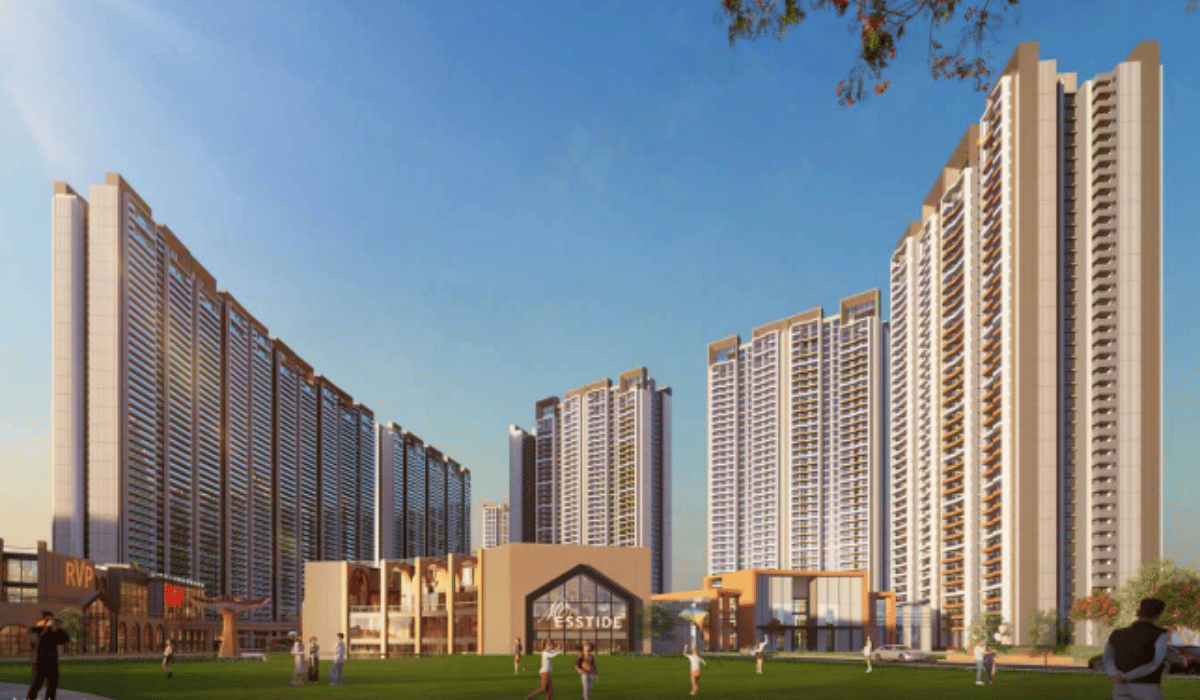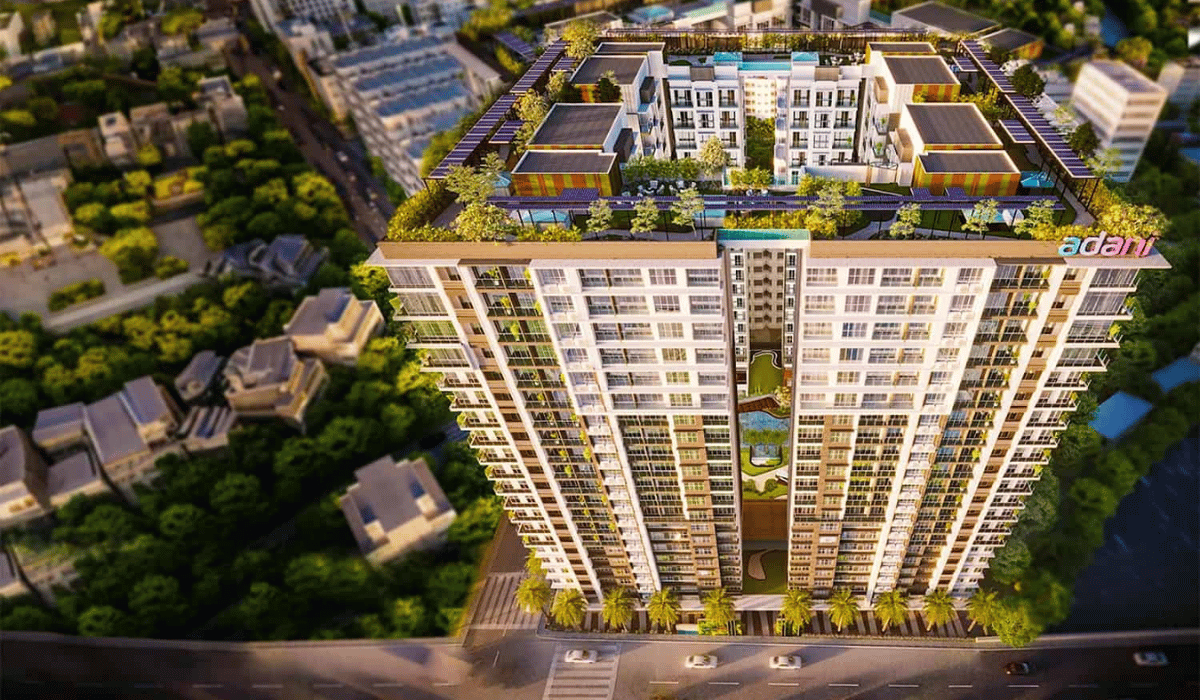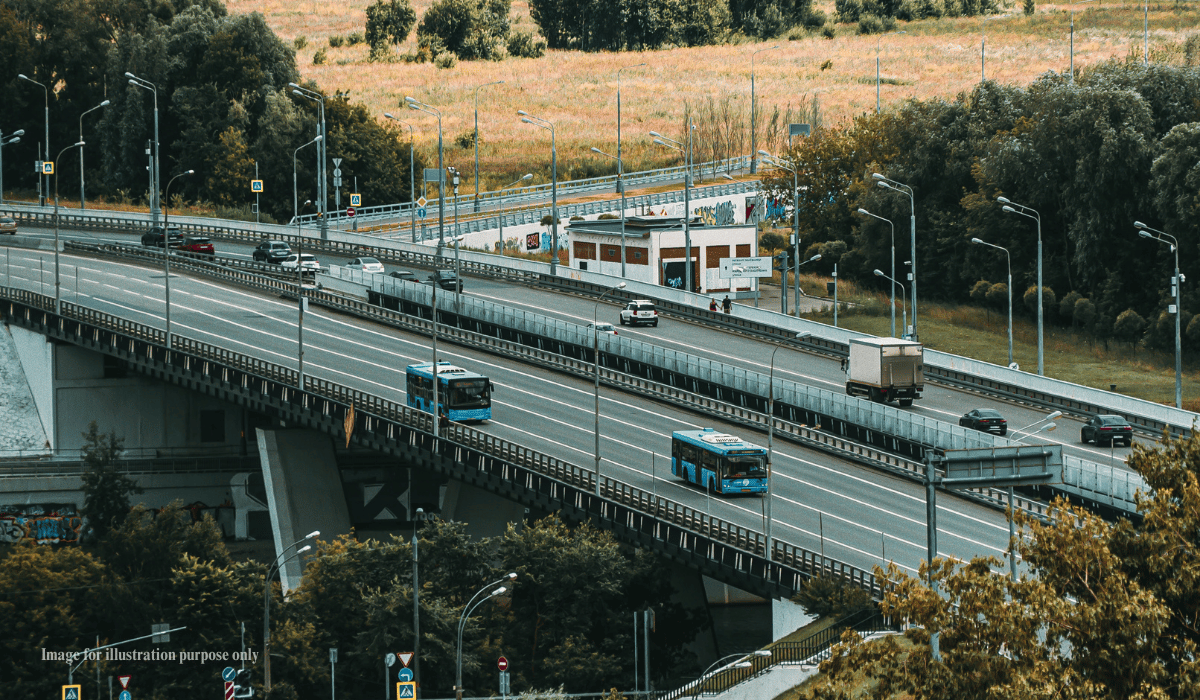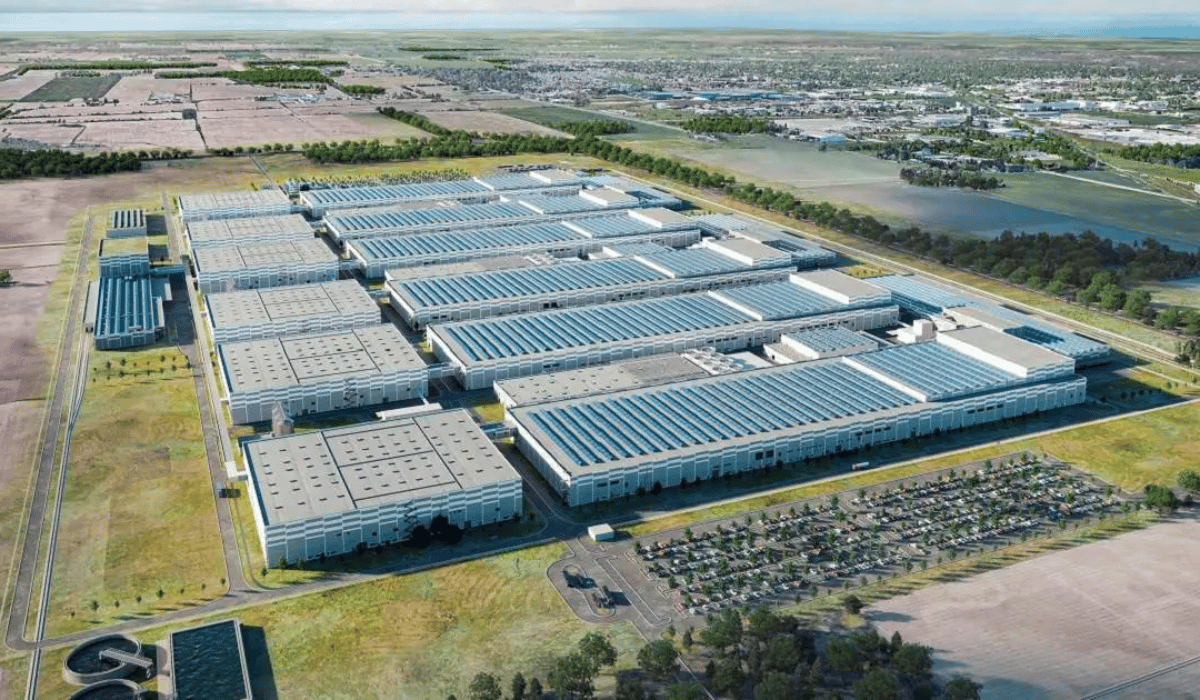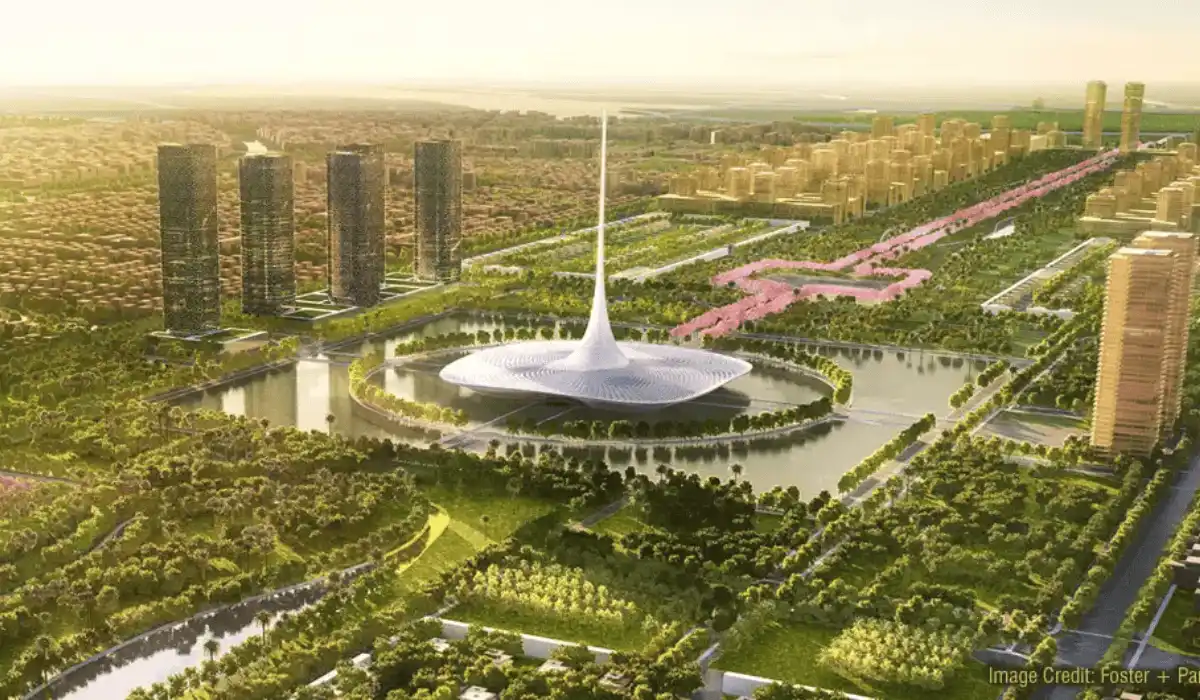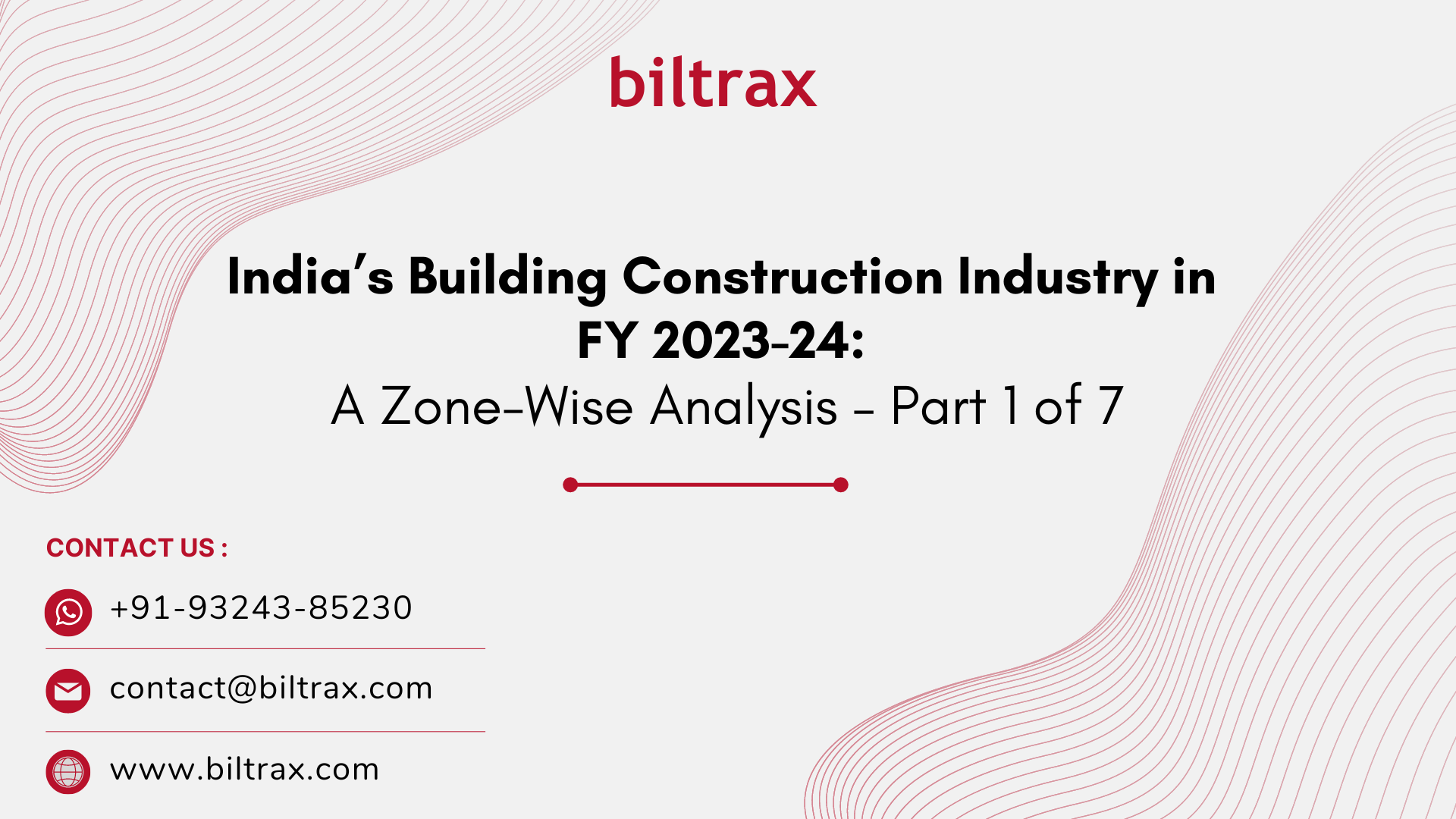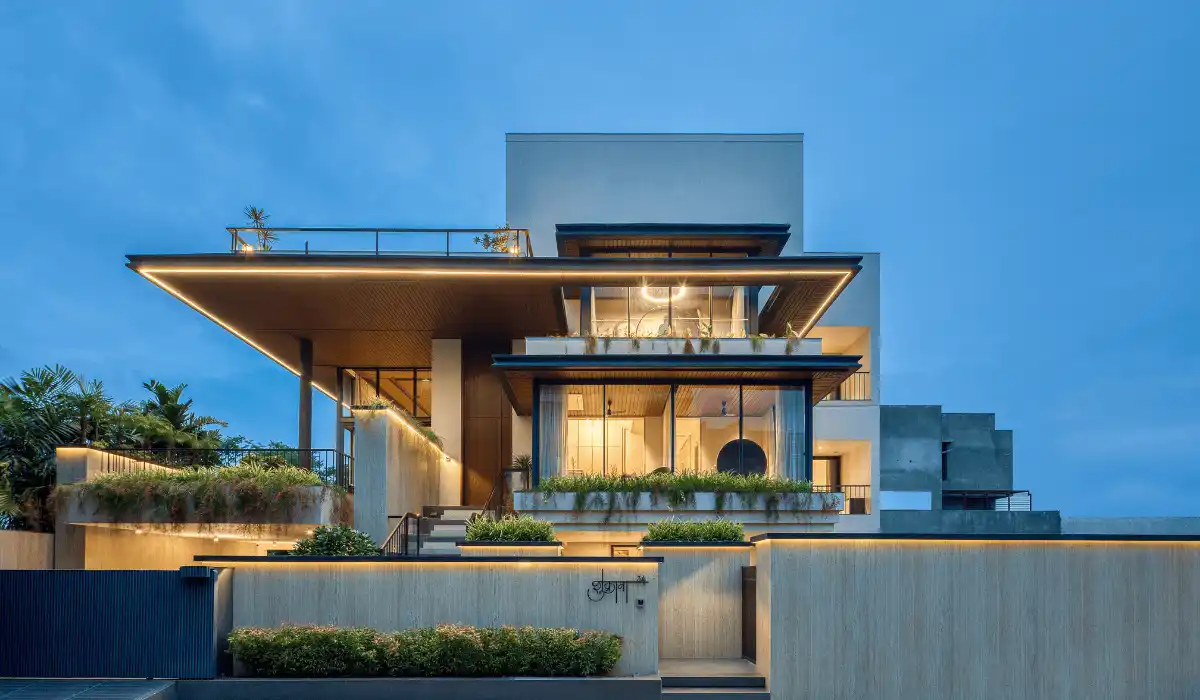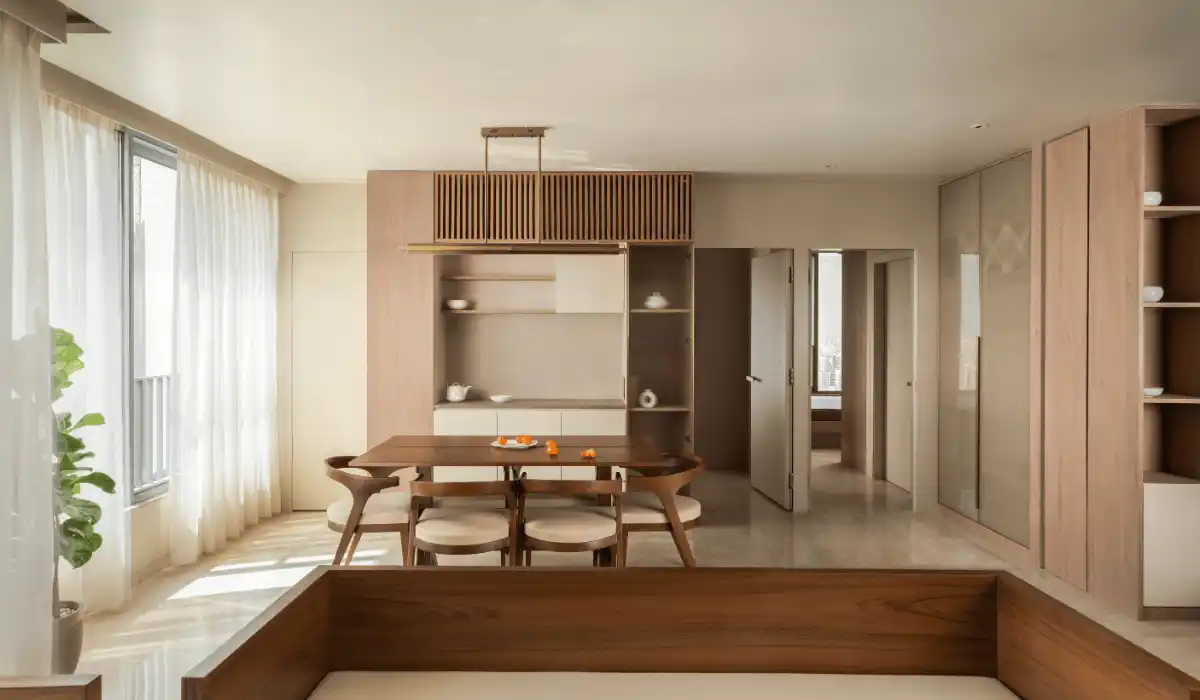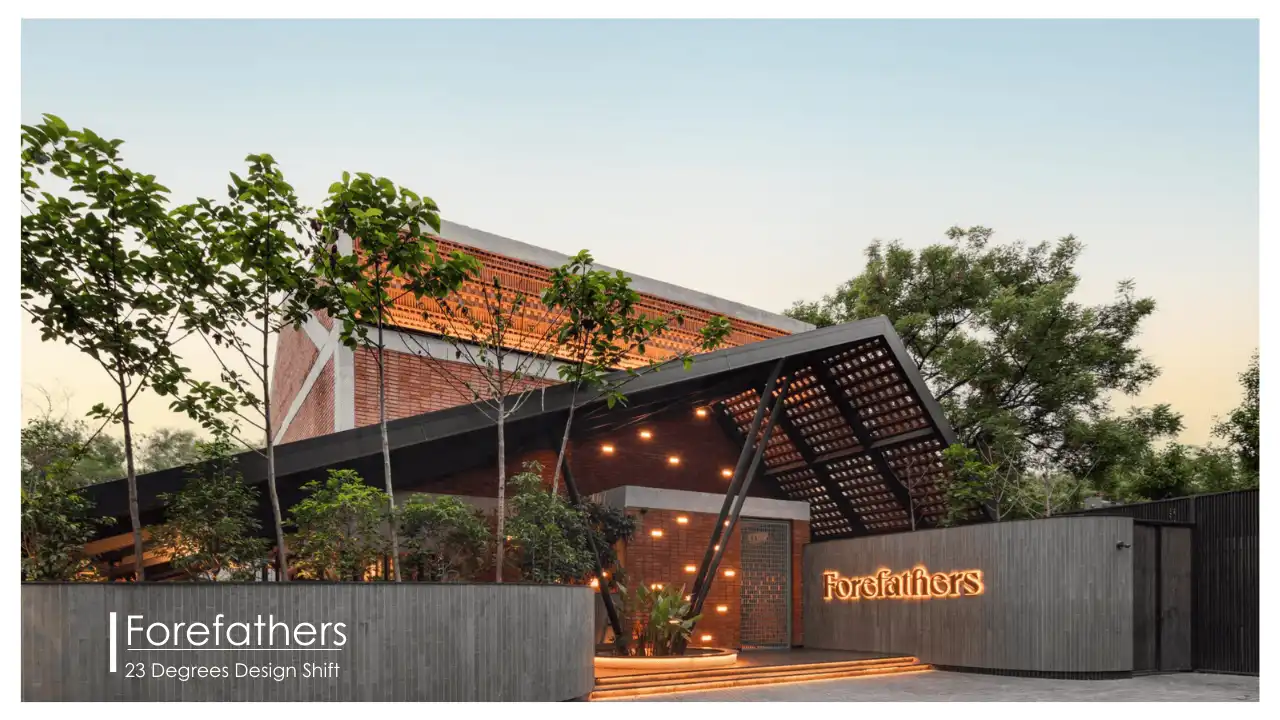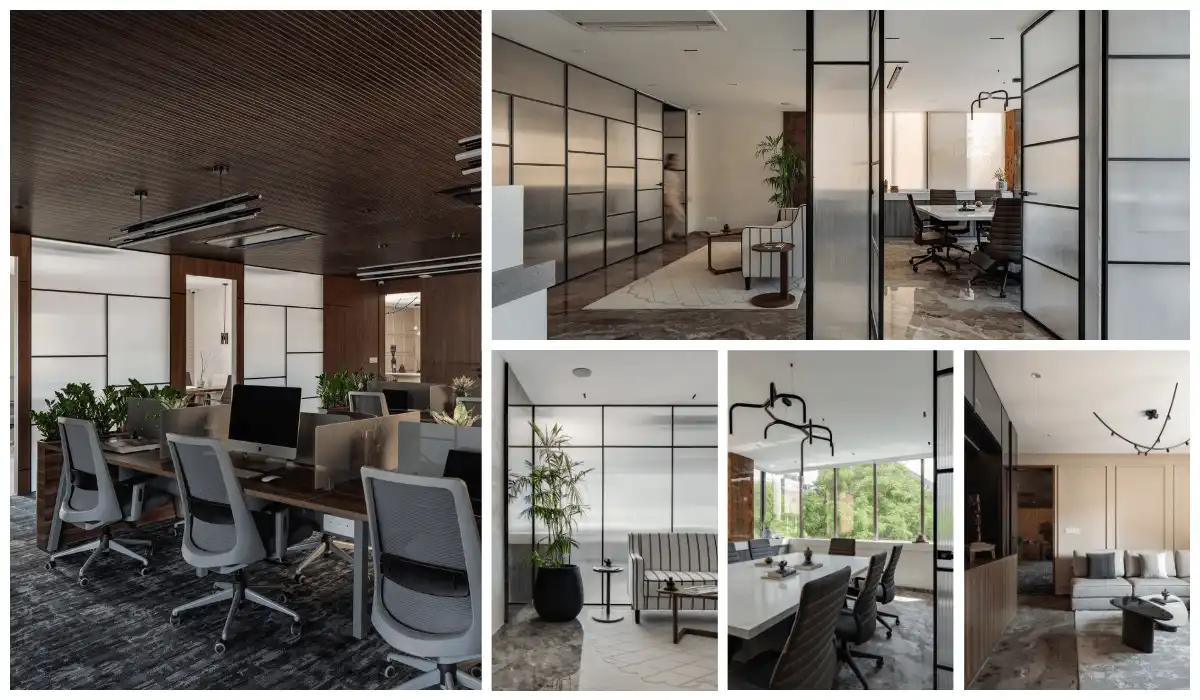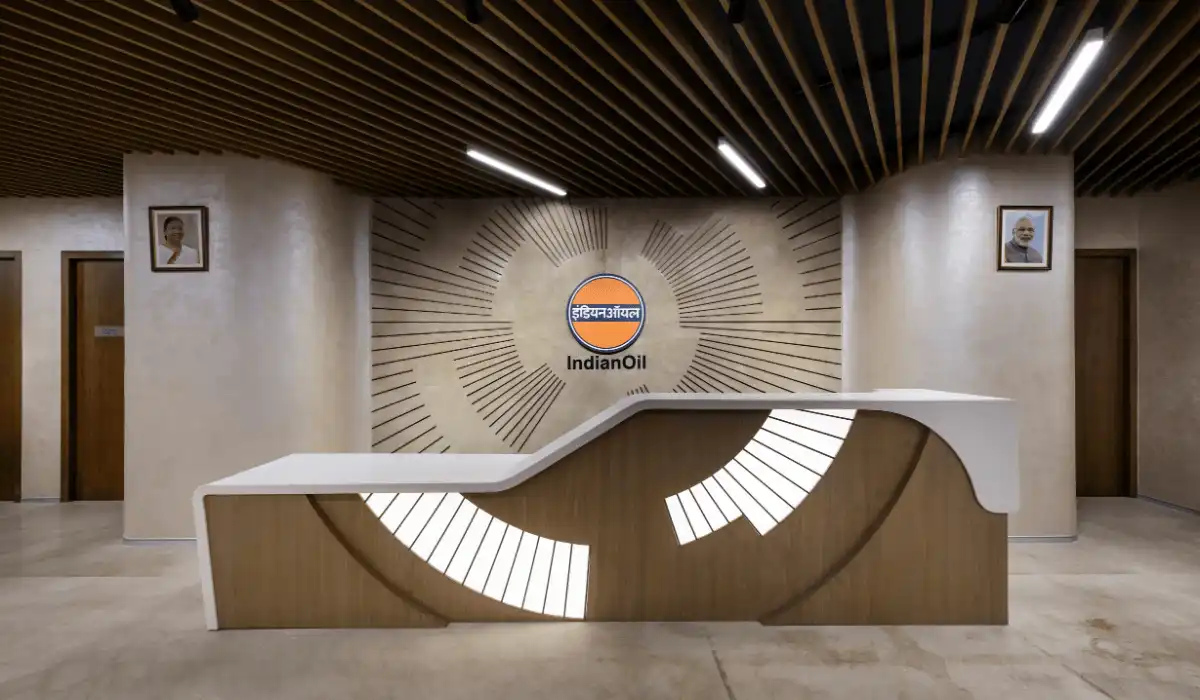The Mill Project by Quirk Studio is a Mid-Century Modern and Wabi-Sabi influenced contemporary office in Erode.
The Mill Project is designed by Disha Bhavsar and Shivani Ajmera of Quirk Studio. The project is a commercial workspace with a built-up area of 2100 sq. ft (195.0964 metres). It is a dexterous design endeavour that has inverted the approach towards conceiving spaces in the realm of industrialisation. The acute devotion to the adapted design process has allowed the workplace to redefine opulence in a novel light. The project liberates itself from archaic design directives to bestow its end-users with a venue that honours their bona fide roots. It weaves together a perceptive narrative that includes the past, present, and future with empathy.
Site Context & Design Philosophy
Located at Erode, the site is at the nucleus of Tamil Nadu’s thriving textile industry. The location celebrates the harmonious binary coexistence of the old and new, both tingeing the city’s history. With its terrain dotted with factories and industrial plants, Erode is a melting pot of modernised trade. It endures heritage that its residents have kept alive. The site is located within the premises of a factory, which is abuzz with activity. The Mill Project (Ālai – translates to ‘Mill’ in Tamil) is an office crafted for a family-run enterprise. The patriarchal head and his two sons shoulder the operations. The rugged natural landscape on the fringes of the city, houses the built mass in its vast entirety. It offers the space a unique topography to occupy, almost evocative of creating an oasis amid barren lands.
The workplace’s narrative is a compelling collage of Wabi-Sabi and Mid-Century Modern timeless design styles that converge to create a functional and luxe work environment.
The client’s brief includes a workplace that is an ode to the rooted context within which the built form is situated. It is a tribute to the suburban context. The inspiration to sculpt the blank industrial canvas stems from the architecture of the building intrinsically. Towering fourteen-foot-high ceilings punctuated with large floor-to-ceiling fenestrations overlook abundant stretches of tropical verdure and the azure skies above.

Design Zoning & Spatial Planning
The design has created pragmatic zones within the bare shell of its industrial enclosure. This forms functional spaces that work jointly to induce a functional flow in the office. The minimalism incorporated into the workplace’s design and layout allows each space to honour the brief. This it does while engaging playfully with elements of scale, light, and materials that ink the saga of the office. A raw material profile encompassing cement finishes, lime plaster textures, and wooden nuances is juxtaposed against the panache of marbles in monochrome palettes. The omnipresence of glass partition systems in the interior layout ties together the floor plan visually, lending it a seamless character. The intriguing interplay of light and shadow through the glazed surfaces washes the interior fleeting daylight.
A Narrative of Wabi-Sabi & Mid-Century Modern
The workplace’s narrative is a compelling collage of Wabi-Sabi and Mid-Century Modern timeless design styles. These styles converge to create a functional and luxe work environment. The commonalities that make the chosen design styles the idyllic fit are derived from their shared penchant for clean geometry which departs from inessential ornamentation, the celebration of materials in their original form, and the prevalence of an understated yet artistic simplicity across spaces and their objects. A sense of calm continuity presides over the segments of the office. Curated furniture, curios, and lighting fixtures endow the space with a harmonious vision through the mediums of colour, texture, and sleek silhouettes. The doses of greenery introduced indoors don a sculptural presence with their form. Tall forms scaling up to ten feet, iterating the voluminous spaces.
The windows lining the exterior elevation enable conducive flow between the factory and the office, allowing spaces indoors to maintain habitable indoor conditions during unforeseen outages.
Facade Design
The office’s unassuming exterior façade composed of a double-tiered band of rectilinear wood and glass windows steals glimpses of the interior workspace. It is speckled with modernist black and white goose-neck wall sconces, planters, and a spindled bench. Attributed to its remote location, the site often faces prolonged spells of power outages, hence the need for active air ventilation and the presence of natural light assumes pivotal importance. The windows lining the exterior elevation enable conducive flow between the factory and the office. They allow spaces indoors to maintain habitable indoor conditions during unforeseen outages.
Reception Area
The entrance leads into the compact reception space framed by a stone veneer. Swirling marbling patterns in charcoal, grey, and brown adorn this veneer. A monolithic concrete-body reception desk is coupled with a black and white globe cluster chandelier. This preliminary space acknowledges the ingrained design inclination of the office.
Communal Workstations
The communal workstation bay is the epicentre of the open-plan layout, devoid of obsolete mammoth partitions witnessed in bygone corporate spaces. The articulate placement of furniture defines the zones and renders it with a clean aesthetic via the employment of ergonomic wood and black metal furniture — a material alliance synonymous with Mid-Century modern aesthetics. The placement of community desks encourages conversation and interaction among end-users while maintaining viable circulation. The ensemble of cement-finished flooring, bright ivory walls, and the grid of wooden rafters on the ceiling create a pared-down yet stimulating aura.
The Private Discussion Room
Bordered by the window-lined façade wall on one end and a wooden and fluted glass partition system on the other, the workstation bay coherently distinguishes itself from the private cabins by a spinal circulation passageway. The custom partition administers privacy for the private cabins towards the rear of the layout and also filters in light into the main workspace, eliminating the need to utilise mechanical lighting until dusk. A private discussion room occupies a glass-enclosed cabin within the workspace. This discussion room, bathed in a monotone palette, can host concentrated groups around its suave round table and upholstered taupe chairs.

The Conference Room
Tucked into the quiet perimeter of the layout beholding external views, the conference room bears a stated demeanour. It exudes tactful material play and creates vignettes of alluring design. The pièce de résistance is the expansive ten-seater marble conference table that commands the room. The table is a vision in monochrome with stunning accentuated veining that envelopes its body. Slender off-white upholstered chairs pair with the table and build on the tonal play. The restrained lime plastered walls and deep-toned wooden flooring allow the design elements to take the spotlight. A grid pattern of rafters layer the ceiling bedecked in teak finishes. This lends it an added sense of dimension in the poised contemporary black minimalist chandelier. The grid motif of the ceiling trickles onto the wall, creating a visual linkage between the surfaces.
The Managing Director’s Cabin
A crossover amidst modernist sensibilities and intuitive forms, the grooved wooden focal wall sets apart the Managing Director’s cabin. This poses as the backdrop to the space. A suede grey sofa dominates the lounge in the cabin. Similarly, a stark marble desk rests boldly in the foreground. Classic Jeanneret inspired chairs in an olive hue complement the desk. The desk area is canopied by a neoteric pendant that unites spherical and cylindrical forms gracefully. The cabin soaks in boundless views of the topography through its lofty fenestrations whilst experiencing uninterrupted privacy.
Private Cabins
The two private cabins have been conceptualised with a shared vision. This shared vision emphasises functionality layered with statement materials, hues, and textures manifest the design scheme. The former cabin employs slate grey grooved panelling that assembles to create an array of rectilinear motifs. This pattern replicates itself on opposite walls to generate visual symmetry in the space. The second cabin sheaths its walls in a mild grey grid box panelling. This is carried over to the opposing wall of the room. Marble work desks, olive-tone chairs, off-white lounge sofas, sculpturesque indoor plants, and geometric-inspired monotone task lighting decorate both private cabins. The cabins too witness the stretched-out scenic views through their ample windows that look into the surroundings.

Supplemental Zones – the Pantry & Powder Bathroom
Supplemental zones in the office include a cluster of the pantry and the powder bathroom. The utilitarian pantry assumes an L-configuration. It emanates minimalism with its the usage of marble as a running counter-top and back-splash material and muted cabinetry. The tessellated indigo, black and grey cement tile flooring pervades the pantry and dining nook, adding a touch of zest to the space. Black-veined marble veils the slick powder bathroom ubiquitously, where the framed mirror, dapper wall sconce, and Venetian blinds accent the space.
The project liberates itself from archaic design directives to bestow its end-users with a venue that honours their bona fide roots while weaving together a perceptive narrative that includes the past, present, and future with empathy.
E-mail: info@quirkstudio.in
Photo Credits: Kuber Shah
Discover more from Biltrax Media, A Biltrax Group venture
Subscribe to get the latest posts sent to your email.




